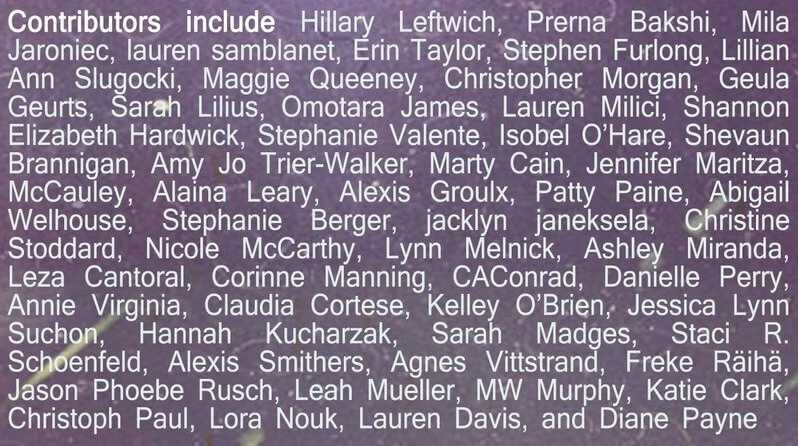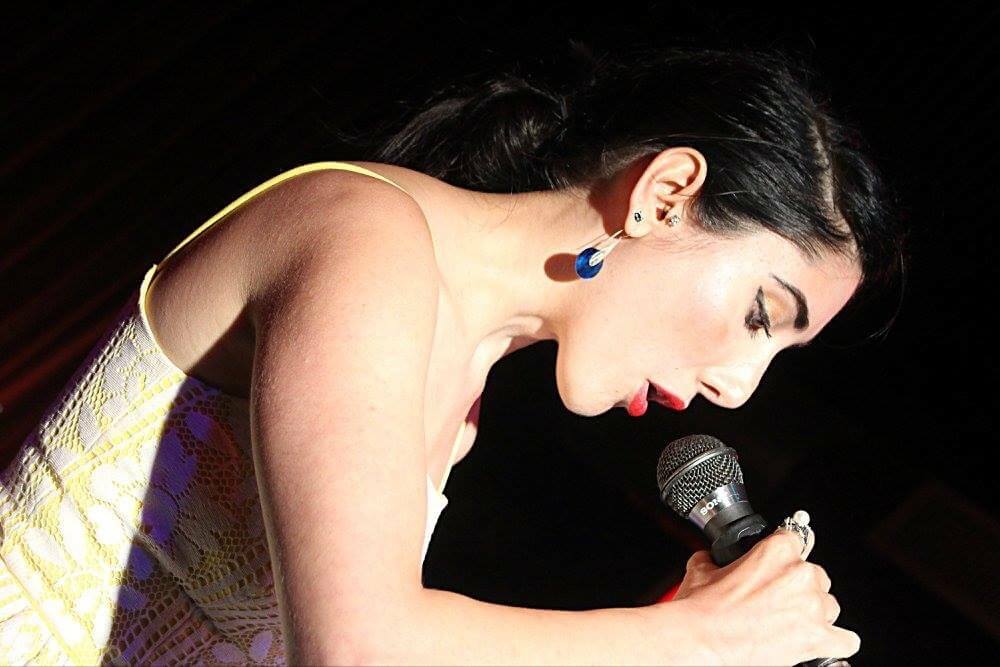
Below is a reading from A Shadow Map: An Anthology By Survivors Of Sexual Assault. You can get this important collection edited by Joanna C. Valente here. Thanks for reading this, Joanna!
The essays and poems contained within this anthology are not only compelling but also harrowing stories of sexual assault. None of these pieces were easy to write–and were born out of traumatizing and terrible experiences. CCM believes in providing a safe space within the literary community where we can not only talk about painful experiences and issues but also necessary considering the current political climate.
FOREWORD BY JOANNA C. VALENTE
What does it mean to survive? We say we survive a traumatic event if we are still alive; better yet, if we are able to get beyond the pain, feel hope and contentment, and allow ourselves to love and be loved. But surviving also means living with the pain, not truly escaping the memories of a trauma. To survive sexual assault is a life-long journey. It means you survived the most brutal of physical and psychological violations while simultaneously surviving the death of the self, or your prior identity. It changes you. It changes how you trust, how you love.
Sometimes it feels like you never survived at all.
I never expected to curate an anthology focused on writing by sexual assault survivors. When I decided to spearhead the project, it surprised me to realize an anthology like this had never been done before—but it also wasn’t entirely shocking. Sexual assault isn’t taken seriously, not even in 2017—many survivors are often doubted, or told to “get over it,” as if you can easily forget what happened.
The project was inspired by—sadly—our current political climate—and most notably, by Donald Trump’s unfortunate statement, “grab her by the pussy.” Like many, I was outraged. I was humiliated that the American public supports someone like Trump—and that many don’t see what was wrong with his comment—or thought it was just “locker room talk,” not abusive, objectifying comments toward women. This was the moment I realized we, as writers, need to fight back. We need to use our language as protest. Change does not come without protest, without a movement—and movements historically start with language—with others uniting across the same belief.
Growing up, I always wanted to be a painter. Most people don’t know this about me. I would spend hours drawing and painting, obsessing over the obscure details of artists’ lives, recreating famous paintings (like Andy Warhol’s soup cans when I was 12), and it wasn’t until my teens that I seriously began writing; even then, I never thought I would become a writer whose work largely reflects a journey of self-discovery post-sexual assault and abortion. But then again, no one can really tell us the future. Humans can barely understand the present moment they’re in—which is half the beauty of being alive, because everything is a possibility.
No one grows up thinking—or assuming—they’ll be assaulted. No child assumes they won’t have ownership over their body—or even truly understands what ownership entails—or how hard it is have possession over your needs, wants, and ability to make choices.
Rape is a violation of one’s body.
Rape is a violation of one’s ownership of their body.
Rape is the violation of consent, of being able to fully make an engaged choice.
When I was 20, I was raped. I was raped by a man I knew, a man I was briefly dating, a man I trusted, a man who was an artist in his community. I was raped more than once. At the time, I didn’t want to accept what happened to me. When it happened the first time, I was asleep. I didn’t know what to think of this in the moment—even when the man said he “hoped he hadn’t just raped me.” I stayed quiet. I never told my friends. I didn’t know how, especially since I didn’t “fight back” although I knew I never consented either. When it happened the second time, and I said no and I tried to fight back, it was harder for me to ignore. I confronted my abuser once, who told me I was crazy, and then never spoke to him again. I never pressed charges—because I didn’t think it was possible—and there wasn’t any evidence. I hadn’t gone to the hospital after it happened. I merely went to bed.
While I’ve written essays and poetry about those experiences, I’ve never written about the time another man assaulted me. When I said I wasn’t interested in sex and he asked if he could “stick it in a little,” I froze and he had sex with me. Or the various times men touched my bodies in ways I wasn’t comfortable at bars or at parties, readings, or coffee shops. It happened so often I became desensitized to unwanted touch—believing it was just how people are, that it was okay. I dealt with it by not believing I could have ownership over my own body. I wanted my body to go far way, just be a brain somewhere laying in the sunlight.
There was no pivotal moment for me that made me realize my body was my own, that no one had a right to it but me. I am still on my journey of self-discovery and survival—navigating a complicated world of murky turmoil—even, and most especially, within the literature community. All of the infighting within the community itself has been triggering and destabilizing for many.
For me, as a survivor, I can say now more than ever, we need to support each other, create spaces where survivors can speak and live without fear and disbelief. Is a space ever truly safe? I don’t know. I would like to believe it is possible to create safe spaces, but in order to do that, we must always question our biases, our privileges, our own entitlements. We must move forward with kindness and compassion for each other.
No one is perfect—which means we can’t expect our survivors to be perfect humans either—and disbelieve someone’s story because we simply don’t like them or don’t know them. There is no “right” or perfect survivor. We are all survivors, and we are doing our best, even if it doesn’t seem to be someone else’s “best.” Survivors are people you know, people you love—they have your face: They are women, men, people who identify in the LGBTQIA community. They are human. Rape knows no bounds or gender—and abusers are people we love, people in our communities, people we often would never suspect.
Now is the time to unite with each other, with our words, and rally. If we don’t, the divide will only widen and that will be the real death of us all. I believe in you, in us. I know we can do the hard work and cross that bridge in the far distance, where the ocean howls, where the sun and moon shine in unison.
Always with love,
Joanna C. Valente
Editor

